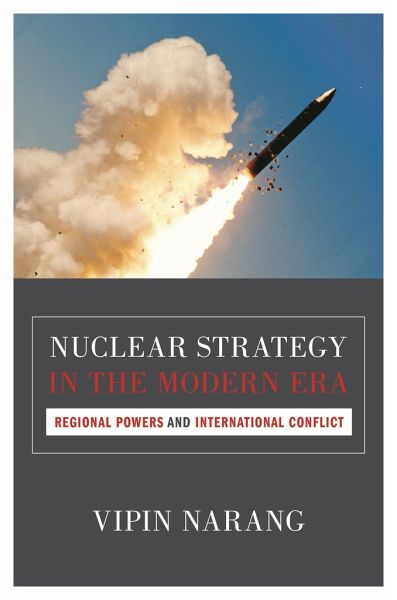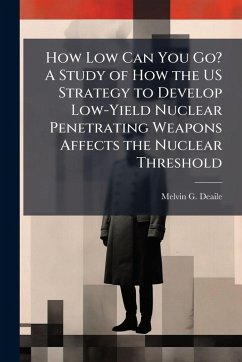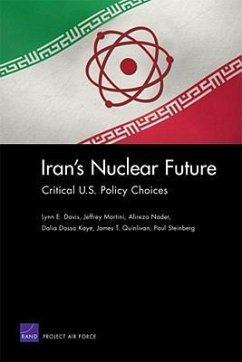
Nuclear Strategy in the Modern Era
Regional Powers and International Conflict

PAYBACK Punkte
18 °P sammeln!
"This excellent book offers a novel typology of nuclear postures and a theory that explains why states adopt certain postures but not others, before assessing the consequences of postures for deterrence. An exemplary blend of theory and qualitative and quantitative evidence, its conclusions have wide-ranging implications for the way we think about nuclear deterrence."--Alexander Downes, George Washington University "This book makes a major contribution to our understanding of the nuclear challenges that we currently face. Narang argues that the theories developed during the Cold War cannot exp...
"This excellent book offers a novel typology of nuclear postures and a theory that explains why states adopt certain postures but not others, before assessing the consequences of postures for deterrence. An exemplary blend of theory and qualitative and quantitative evidence, its conclusions have wide-ranging implications for the way we think about nuclear deterrence."--Alexander Downes, George Washington University "This book makes a major contribution to our understanding of the nuclear challenges that we currently face. Narang argues that the theories developed during the Cold War cannot explain the nuclear policies of regional powers. To fill this important gap, he convincingly lays out three distinct nuclear postures available to regional powers and he questions conventional wisdom to show that a state's nuclear posture significantly influences its deterrence effect."--Charles Glaser, George Washington University "With the end of the Cold War, the nuclear postures of countries other than the United States and Russia are increasingly central for theory and policy, but our knowledge of these postures has been deficient. Showing that states have tailored their stances to different internal and external situations, Narang combines rich empirical research and careful theorizing to add greatly to our understanding of deterrence."--Robert Jervis, author of The Meaning of the Nuclear Revolution "Vipin Narang's study of the causes and consequences of different states' nuclear weapons postures is a significant contribution to the literature on the causes of military doctrine, as well as the literature on both nuclear proliferation and deterrence theory. Narang's interpretations are novel and thought provoking, and he skillfully combines rich case study work with sophisticated statistical tests."--Scott D. Sagan, Stanford University













